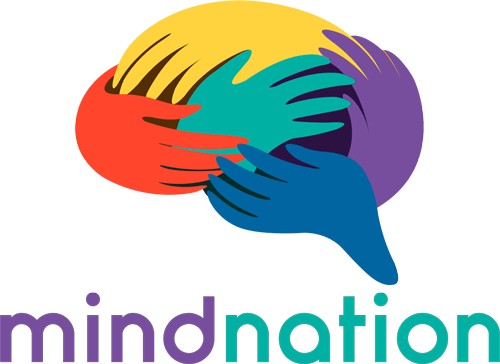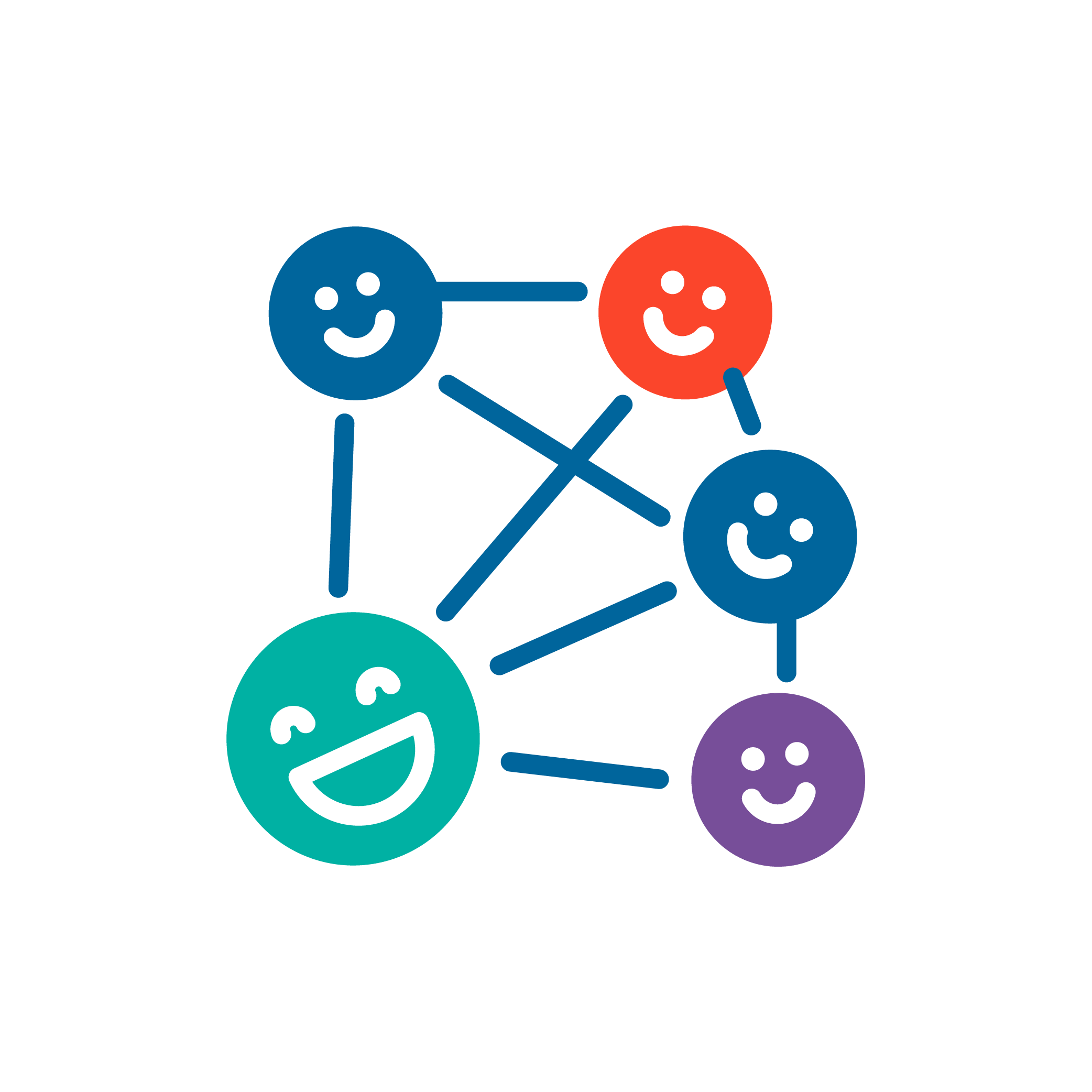


A collection of resources and exercises that you can do at your own leisure to improve your well-being

February 12, 2024
Ways To Say “No” To Friends
And remember: you don’t have to feel guilty about it
Continue Reading
February 07, 2024
Unlocking Deeper Connections
A Guide To Communicating Your Love Language To Your Partner
Continue Reading
December 19, 2023
5 Christmas Journal Prompts For Self-Reflection
Unpack all your thoughts and feelings to know the true meaning of the season.
Continue Reading
November 24, 2023
5 Non-Material Christmas Gift Ideas
This season, let’s focus on connection and well-being
Continue Reading
November 10, 2023
4 Ways To Set Healthy Boundaries For The Holiday Season
Boundaries help us enhance our self-esteem, manage our feelings of overwhelm, and improve our relationships.
Continue Reading
November 09, 2023
6 Simple Ways To Practice Gratitude Everyday
When you have a gratitude mindset, you attract a more abundant life
Continue Reading
November 09, 2023
Busting The Top 5 Burnout Myths
So you can work hard but still be well
Continue Reading
November 03, 2023
Build Better Men: 7 Ways To Overcome Toxic Masculinity
Breaking free from this damaging mentality is not only possible but essential for personal growth and societal progress.
Continue Reading
October 27, 2023
5 Common Myths About Grief Debunked
Understanding how to separate fact from fiction when it comes to grieving may help you heal and recover better
Continue Reading
October 19, 2023
10 Steps To Help Someone Begin Therapy
Learn effective strategies to inspire friends and family to consider therapy for improved well-being.
Continue Reading
February 12, 2024
Ways To Say “No” To Friends
And remember: you don’t have to feel guilty about it
Continue Reading
February 07, 2024
Unlocking Deeper Connections
A Guide To Communicating Your Love Language To Your Partner
Continue Reading
December 19, 2023
5 Christmas Journal Prompts For Self-Reflection
Unpack all your thoughts and feelings to know the true meaning of the season.
Continue Reading
November 24, 2023
5 Non-Material Christmas Gift Ideas
This season, let’s focus on connection and well-being
Continue Reading
November 10, 2023
4 Ways To Set Healthy Boundaries For The Holiday Season
Boundaries help us enhance our self-esteem, manage our feelings of overwhelm, and improve our relationships.
Continue Reading
November 09, 2023
6 Simple Ways To Practice Gratitude Everyday
When you have a gratitude mindset, you attract a more abundant life
Continue Reading
November 09, 2023
Busting The Top 5 Burnout Myths
So you can work hard but still be well
Continue Reading
November 03, 2023
Build Better Men: 7 Ways To Overcome Toxic Masculinity
Breaking free from this damaging mentality is not only possible but essential for personal growth and societal progress.
Continue Reading
October 27, 2023
5 Common Myths About Grief Debunked
Understanding how to separate fact from fiction when it comes to grieving may help you heal and recover better
Continue Reading
October 19, 2023
10 Steps To Help Someone Begin Therapy
Learn effective strategies to inspire friends and family to consider therapy for improved well-being.
Continue Reading
MindNation’s Financial WellBeing Toolkit explores the link between financial stress and employee well-being, offering actionable strategies for organizations to prioritize financial wellness. By doing so, businesses can enhance employee resilience and boost organizational performance in today’s competitive economy.
The insights are backed by data from MindNation’s WellBeing Surveys, conducted from January to September 2024, with 12,363 respondents across various industries in the Philippines. Psychologists, certified financial planners, and additional research were consulted to enrich findings and ensure a comprehensive understanding of employee financial wellness.

Here are statistics, visuals, and messaging templates that you can use to communicate your company’s support for creating a mentally healthy workplace.
- According to the WHO, 60% of the global population is employed. 15% of working adults suffer from mental disorders and stigma. However, mental health has yet to be set as a priority in the workplace.
- To effectively address these concerns, it is crucial for companies to invest more in mental health programs and resources to improve employee well-being and promote a mentally healthy, productive, and stigma-free environment where both employees and the organization can thrive.

This toolkit aims to provide parents, caregivers, and educators with ways they can take proactive steps in offering children protection and/or timely intervention from stress, maltreatment, neglect, trauma, or harm.
- A report by the World Health Organization published in October 2020 states that 1 in 5 children and adolescents has a mental disorder.
- Suicide is the second leading cause of death for people as young as 15 years old.

This toolkit lists down the steps employers can take to combat stigma in the workplace and encourage people to seek help when they need it.
- Because of stigma towards mental illness and fears of repercussions at work, many employees experiencing depression, stress, or the like choose not to seek treatment for their conditions.
- One of the keys to reducing mental health stigma is to disseminate the message that mental illness is not anyone’s choice, and that recovery is possible with appropriate treatment and support.

This toolkit aims to provide business leaders and managers with a blueprint for helping their employees increase their financial health, meet their short-term and long-term financial goals, and balance today's challenges with tomorrow's needs.
- According to a report by International Monetary Fund, the economic downturn caused by the COVID-19 pandemic is far worse than during the financial crisis in 2008 and is the worst recession since the Great Depression, impacting not just nations but also household all over the world.
- 54% say that a financial well-being program in the workplace would boost their productivity, improve loyalty, and recommend their employer to other job seekers as a great place to work.

This toolkit dives deep into the concerns that women face at work and gives recommendations for business leaders on how they can create workplace policies that promote gender equality, empower women, and support their welfare.
- Women spend an additional 2.5 hours more than men in doing unpaid work (i.e. domestic responsibilities) since most workplaces are often unwilling or unable to provide the flexibility women need to fulfill their duties at work and at home.
- An empowered female workforce can boost company profits and share performance by as much as 50%.

This toolkit contains steps employers and managers can take to reduce discrimination and promote inclusivity in the workplace to allow LGBTQ employees to maximize their potential and productivity.
- 1 in 2 LGBTQ employees have faced or witnessed verbal discrimination at work.
- 47% of LGBTQ employees believe being “out” at work could hurt their career.

Find out how Employee Resource Groups (ERG) can help promote better understanding of mental health issues in the workplace, reduce stigma, and care for those with mental health concerns.
- Mental health disorders cost the global economy US$ 1 trillion each year in lost productivity.
- Workplaces that promote mental health and support people with mental disorders are more likely to show increased productivity and benefit from associated economic gains.

This report will help embed suicide prevention strategies in your organization’s health and well-being policies and guide your approach to supporting those at risk.
- Suicide rate rose by 57% in 2020 compared to the previous year Suicide is the 25th leading cause of death in 2020, up six notches from 31st place in 2019.
- 8% of employees in every company have suicidal thoughts and are unproductive at work.

This toolkit outlines the issues affecting the mental health and wellbeing of LGBTQIA+ employees, and suggests what companies and managers can do to address these issues.
- 47% of LGBTQ+ employees believe that being "out" at work could hurt their career.
- The pandemic has affected the mental health of LGBTQ+ workers with 40% of employed queer adults significantly impacted globally.

This toolkit will focus on the mental health needs of employees from Argentina, Colombia, and Mexico. It will also provide recommendations and steps that business leaders can take to create a workplace culture that builds happier, healthier, and more productive Latino employees.
- The World Health Organization said that depression is the leading mental health disorder in Latin America, with 5% of the adult population affected by it.
- 40% of LATAM workers have suffered from working too hard or burnout in 2020, mainly from high workloads brought about by remote working.

This toolkit focuses on the mental health needs of employees from Egypt, the UAE, and Saudi Arabia. Additionally, it will dive deep into the barriers that prevent people in the Arab workforce from seeking help for their mental health needs.
- 35% of adults in the Middle East report feeling stressed
- 29% suffer from depression

This report provides an overview on the mental health of Malaysian workers and recommends the best ways employers can reduce absenteeism of staff, improve the overall health and happiness of the team, and benefit from associated economic gains.
- Malaysian companies lose a total of 73.3 days per employee due to mental health concerns.
- Mental health concerns cost Malaysian businesses RM1.5 million per month.

Here are statistics, visuals, and messaging templates that you can use to communicate your company’s support for creating a mentally healthy workplace throughout Mental Health Awareness Month.
- According to the WHO, 60% of the global population is employed. 15% of working adults suffer from mental disorders and stigma. However, mental health has yet to be set as a priority in the workplace.
- To effectively address these concerns, it is crucial for companies to invest more in mental health programs and resources to improve employee well-being and promote a mentally healthy, productive, and stigma-free environment where both employees and the organization can thrive.

This document is a compilation of the various services that employers and remote workers can avail of to make remote working as stress-free as possible.
- By operating on a cloud platform, you can collaborate on different ideas and schemes while working together.
- Utilizing video conferencing platforms can heighten connections and initiate relationships.

This document is a collection of strategies and suggestions for looking after your physical and mental well-being during these uncertain times.
- Although it is valid to feel distressed about the pandemic, it is crucial to remain realistic and rational.
- It’s important to remember that your body and mind are both crucial things you need to take care of.

This guide is designed to help managers care for the mental health of their employees during these uncertain times, ensuring that they stay safe, productive, and well.
- Mental health experts are warning that losing everyday social connections comes with psychological costs.
- Many quarantined individuals experienced both short-term and long-term mental health problems, including stress, insomnia, emotional exhaustion and substance abuse.







